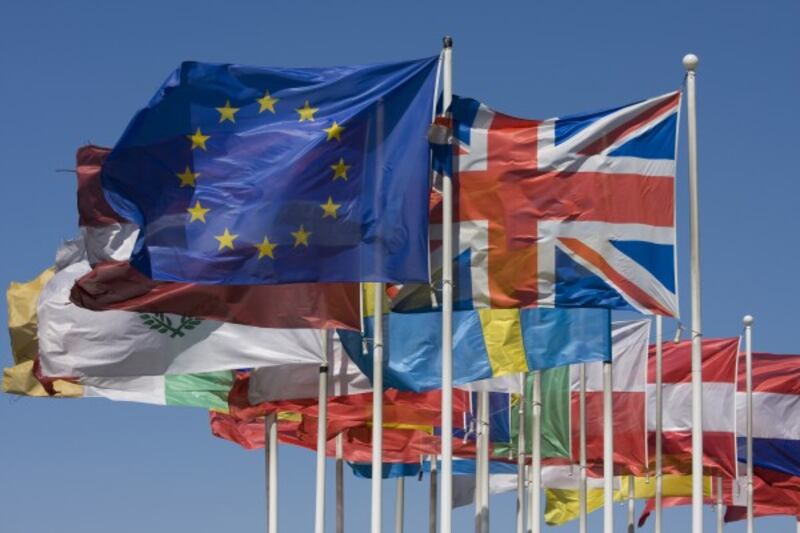The moment has finally arrived. Today, Theresa May will write to the European Council advising of the UK’s intention to leave the EU, triggering Article 50.
This gives the UK government two years to negotiate its exit from the European Union. So what skills will the negotiation team need to have up their sleeve to get the best deal?

We asked Michael Norman, a negotiation expert and trainer with 25 years experience, to give us some tips.
1. Understand your own style

Understanding how you communicate with others is essential to being a good negotiator.
Negotiation styles fall broadly into two categories: integrative and distributive.
Distributive is a competitive, adversarial negotiation where everyone is trying to beat one another. It’s really a question of how much of the pie you can get. Integrative is a lot more open and sharing, trying to understand the other person’s point of view and asking how big can we make the pie overall.
On what style the EU negotiators will fall into, Michael says “it’s likely everyone is going to be protecting their interests, they don’t want to be seen to be giving in or conceding.
“However, behind the scenes it could be completely different; it could be an understanding that the parties have got to get started, they’ve got to understand each other’s views.”
2. Plan and research, then plan and research some more

“Planning is everything,” says Michael.
“Even though it’s never going to go to plan in any negotiation, you’ll have a fantastic library of information which is going to stand you in good stead.”
You should try to know everything there is to know about what you and your negotiating partner want.
The devil really will be in the detail with the Article 50 negotiations and those who are able to react quickly to items brought up in the negotiation will be best placed to capitalise.
3. Build relationships

“In an ideal world, we’d all trust everyone, be totally open and prepared to take risks by opening up what we really wanted from a negotiation,” says Michael.
“This might not be the real world, but there’s no reason positive relationships shouldn’t be part of a negotiation.”
“I’m guessing within the EU negotiations, there’s going to be some very strong relationships between people from different countries. Lots of questioning and listening to the other side, even if it doesn’t create the overall agreement, should form an essential part of the negotiation strategy.”
4. Establish where power lies

It’s important to remember that power isn’t always where you think it is.
There are two types of power; personal and positional. “Personal power comes from being an expert in a certain area or being a good influencer.
“Positional power is that you are the customer or you have the power to reward or remove. For example, if you are a police officer or a teacher, that position comes with power because of what you do rather than who you are.”
It will be useful in the Brexit talks to think about where different sources of power lie and who will be able to influence others around the table.
5. Recognise and appreciate cultural differences

As the UK negotiators will be working with multiple nationalities around the table, it is important to consider cultural differences. Research into this is key to being able to appreciate other people’s point of view.
“Everyone is an individual and we’re not all cultural ambassadors of our individual countries, but on average, people’s attitude to risk and acceptance of hierarchy will change according to what country you are from.”
“For example, in the UK, we don’t mind a bit of risk. We’re quite individual and look after ourselves and immediate family, whereas other countries are completely different”
With regard to the EU negotiations, Michael reckons the negotiators will have more in common than they think. “There will be some differences, but there’s more likely to be similarities.”
6. Keep your eyes and ears open

Negotiation is about much more than what comes out of your mouth. Try and be aware of visual cues, as well as listening intently to your counterparts.
“A skilled, trained negotiator is more likely to be one with their head up and be comfortable in what they are talking about and will be looking for support in the room for the other side.”
Michael says: “Within the EU negotiation there will be lots of signs, both visual and verbal, of what people are thinking.
“There will be body language leakage, so even if people don’t say something, they won’t necessarily be able to hold back the way they feel.
If we have our heads up and looking for stuff like that, we may find clues about how people are feeling.”
7. Don’t be afraid to bring in emotion

Part of persuading and influencing others is being emotionally intuitive.
“I can imagine the Brexit talks are going to be tediously logical, a swapping of facts,” says Michael. “So someone who can bring a bit of emotion to that will be useful.”
Broadly, there are a few principles which can be useful. Pretend not to be interested, don’t react to pressure and always be prepared to walk away.








